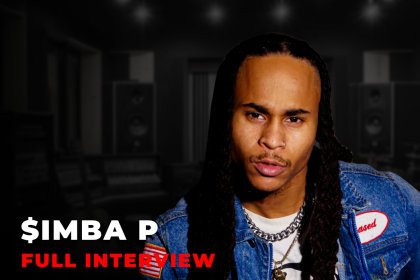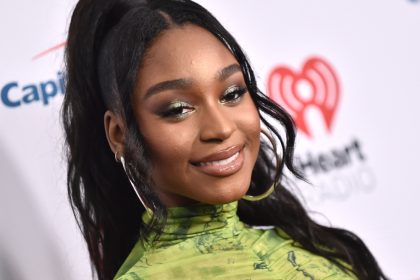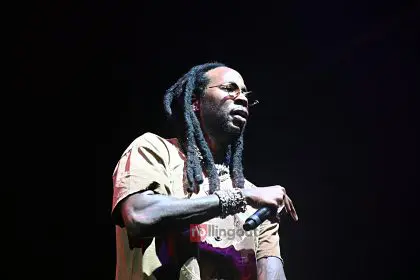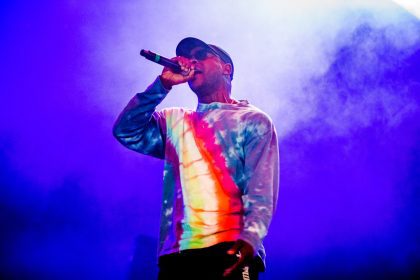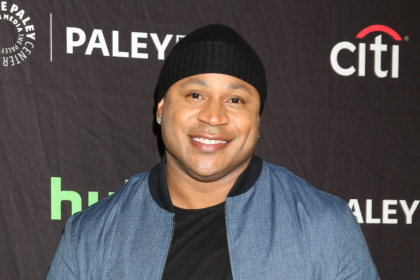
Thirty years ago Prince released what has arguably become his quintessential LP, the immaculate soundtrack album, Purple Rain. Dropped in the summer of 1984, The Purple One’s sixth album was the blockbuster that catapulted him to the forefront of pop music and culture. Purple Rain isn’t his boldest classic album (Dirty Mind), nor is his most influential (1999); and it isn’t a stretch to consider 1987’s Sign O’ the Times his most compelling and creatively-inspired artistic statement.
But Purple Rain is his towering achievement; an accessibly pop album that’s still somehow as unapologetically weird as what came before, a perfect recording that you can appreciate immediately but that also reveals impressive nuances after repeat listens. Understand, this was the first major creative release from Prince after Michael Jackson’s Thriller revolutionized the way we viewed pop stars and pop albums. Prince had been anointed “New Black Genius” status by rock critics as far back as 1980s Dirty Mind, but with the release of Thriller in late 1982, and the omnipresence of Jackson throughout 1983; he’d watched as MJ made the quantum leap from crossover R&B star to biggest star on the planet. And Jackson was doing so in the new age of multimedia — Jackson didn’t just become a megastar because of great songs; he did it with watershed TV appearances and music videos.
Prince was most definitely watching, and now, he was proving that he, too, could be that–with a quasi-biopic produced before much of the mainstream world even knew who he was; and he accompanied it with an album of perfect pop songs. If 1999 was Prince and the Revolution knocking on the pop door, Purple Rain was the sound of them knocking it down. In the 1970s, soul artists like Marvin Gaye and Stevie Wonder sold records and garnered tremendous critical acclaim; but that didn’t make them unequivocally the biggest stars of the era. Jackson’s 1983 ascendance proved that a black artist could be more than acclaimed-and-popular; they could be what Elvis Presley or the Beatles had been–the biggest, most iconic pop star in the world; and now, acts like Whitney Houston and Lionel Richie stood at the pinnacle of pop superstardom. Not only was Prince ready for the moment, the audience was now ready for Prince.
In recognition of the greatest album of the 1980s (yes, you read that right), here’s a breakdown of each classic track on Prince’s classic best-seller. Starting with the greatest opening song ever.
Let’s Go Crazy
It’s the perfect opening. From that churchy organ, to Prince’s goofy sermonizing about life and death — it epitomizes all that is brilliant about 80s Prince. He manages to successfully combine a Stonesy guitar riff with a hard dance backbeat — with some of the sweetest synths layered on top to give it that traditional Minneapolis feel. An amalgamation that works so well, you never notice how musically unique it is. It’s still one of the greatest songs he ever made and those guitar solos are as face-melting as anything Eddie Van Halen or Steve Vai put to wax in the mid-1980s.
Take Me With U
Proof that Prince could fit comfortably in almost any pop/rock/funk idiom, this slice of Beatle-esque guitar pop is the most acoustic moment on the album. A duet with his movie co-star Appolonia, it’s impossible to hear those shimmering chords and graceful synth strings and not envision them riding off to that-ain’t-Lake Minnetonnka.
The Beautiful Ones
A gorgeous piano ballad that’s still one of the best love songs he ever recorded, Prince originally wrote this track as a testament to his then-unrequited love for Wendy Melvoin’s sister, Susannah — whom he later dated off-and-on for a few years. Going from heartbroken and yearning to intense and pleading, it’s another song that has come to musically define 80s Prince.
Computer Blue
That this song is so under-acknowledged says more about what’s around it than the quality of the song itself. Featuring more blistering guitar work from Prince and he based the unique guitar solo on a piano line that his father, John Nelson, had recorded years earlier. The song’s ambitious origins — it was conceived as a 14-minute opus — are still evident in the final, shortened version that made it into the album. Structurally, it passes through as many distinct themes and fragments as “Bohemian Rhapsody” or “Band On the Run.” It’s a staggeringly creative piece of music — delivered in just 4 minutes.
Darling Nikki
Ah yes — the most notorious moment on the album. Prince’s ode to a groupie who’s a fan of dirty magazines and exhibitionism, apparently. This young “sex fiend” had a compelling story and this song managed to get a bunch of Washington wives in an uproar in 1985, but now, it’s best acknowledged as probably the single weirdest concoction on the album. Over hazy, druggy synths and a tom-tom heavy drumbeat, Prince shares his charming little story song about sexing with Nikki — and the band comes crashing in on every chorus break, with the song closing with more stellar guitar leads from Prince. And then there’s that coda: an oddly psychedelic bit of backwards chanting that is a reverse recording of Prince singing “Hello, how are you? I’m fine ’cause I know that the Lord is coming soon. Coming, coming soon.”
When Doves Cry
Probably the first truly inescapable Prince hit. This was, for all intents and purposes, the “Billie Jean” of Prince’s career. It was the best-selling single of 1984 and it’s not at all hard to see why; it’s funky and slightly off-kilter backbeat, that instantly catchy synth line and one of Prince’s all-time greatest hooks. It’s a perfect radio song; and was voted the #1 song of 1984 by Billboard, The Village Voice and kept Bruce Springsteen’s “Dancing In the Dark” from hitting #1. The final song Prince wrote for the album, it was intended to reflect the theme of strained relations between The Kid (the protagonist of Purple Rain, a fictionalized version of Prince himself) and his mother and father.
I Would Die 4 U
A synth masterwork and one of Prince’s best singles, this lush dance track was the final single released from the album to hit the Top Ten. “…Die 4 U” features some of the most overtly religious lyrics of any Prince hit (though there are many) and many fans heard it a million times before they understand the themes. The opening line seemed to reflect Prince’s own androgynous image in the mid-1980s, (“I’m not a woman, I’m not a man, I am something that you’ll never understand”) but, upon a closer listen, it’s clear that this song is paean to a higher being and his love for humanity. A song that resonates so deeply with so many that some churches have played it for their congregations on Easter Sunday.
Baby I’m A Star
Prince has never been shy about flaunting his Prince-ness, and this track is the definitive rock star anthem of his discography. This was probably the longest-gestating song recorded for the Purple Rain album, Prince had been performing it as far back as 1982, prior to the 1999 sessions. He even recorded a version; but the song was revisited for the album. The cut that is heard on Purple Rain was recorded live in 1983 at the First Avenue nightclub in Minneapolis and is technically the first recording to feature Wendy Melvoin, who would become a mainstay of the Revolution and Prince’s latter career.
Purple Rain
Think about it; is there really a better ’80s power ballad? The drama, the emotion, the flair — it’s so beautifully pompous and so perfectly delivered that you forgive the fact that the lyrics get a little hokey. It’s epic in every sense of the word, it sounds like he’s playing on top of a mountain. It was recorded during the same performance as “Baby I’m A Star”; a benefit concert for the Minnesota Dance Theatre at First Avenue. Prince was allegedly initially worried that the song would sound too similar to Journey’s hit “Faithfully.” Fret not, Prince Rogers Nelson — no one in the past 30 years has mistaken this for Journey.

